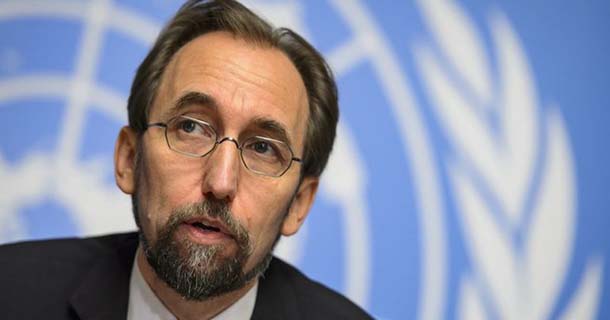
High Commissioner of the United Nations (UN) for Human Rights, Zeid Ra’ad al-Hussein
Photo: Getty image
Prince Zeid Ra’ad al-Hussein, the UN High Commissioner for Human Rights in his final address made to the UN Human Rights Council’s 38th session on June 18 reported on the failure of some countries to grant access to UN Human Rights personnel.
During the course of his speech, he rebuked China for not allowing his staff’s unfettered access to the country, including the Tibetan Autonomous Region and the Xinjiang Uyghur Autonomous Region, where the human rights situation is reportedly fast deteriorating.
The High Commissioner noted that although two mandate-holders have visited the country in the past five years, China has in that period accumulated more than 15 pending requests for visits.
He also stated his dismay at China’s continuing efforts to prevent independent members of civil society from engaging with human rights mechanisms.
One of example of such a mechanism is the Universal Periodic Review (UPR), which involves a periodic review of the human rights records of all 193 UN member states. This year China, amongst others, is due to undergo its third UPR.
The High Commissioner encouraged the Chinese authorities to “enable all actors to contribute to all the international human rights mechanisms, and to cooperate with them in a spirit of open and mutual partnership, in order to improve respect for the rights and freedoms of China’s people.”
He exhorted all nations to support the founding principles of the UN, namely the protection of peace, rights, justice and social progress. He stated that only by pursuing the opposite to nationalism – only when States all work for each other, for everyone, for all people, for the human rights of all people – can peace be attainable.
He appealed to the international community “to do more, to speak louder and work harder for the common purpose and for universal human rights law, to better our chances for a global peace.”




 Print
Print Email
Email